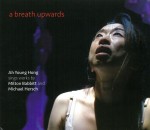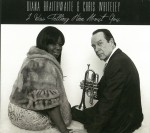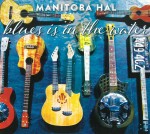It was with shock and sorrow that I received the news of the death of my friend and colleague of the past 20-some years, Robert Tomas, who drowned in the Turks and Caicos on April 1. I met Robert during the five years I spent at CJRT-FM as a classical music programmer in the 1990s, where he was one of the on-air technicians, juggling turntables, CD players, reel-to-reel pre-recorded voice tracks, PSA cartridges and engineering live-to-air programs with aplomb. A Polish émigré who had worked extensively in the world of opera production in his homeland, Robert was a man of many skills with a breadth of understanding, including an encyclopedic knowledge of classical music, but also extending to reading about astrophysics and mathematics “for fun” and writing a novel retelling The Tempest in the context of the Bosnian War. In recent years he worked in philanthropy and was a highly respected fundraiser for social justice initiatives. He championed LGBT causes, was a proud Leatherman who promoted safe, healthy sexuality and advocated for those living with HIV/AIDS from the start of the epidemic.
In 2004 I asked Robert to write for The WholeNote and since his first thoughtful assessment of soprano Leslie Fagan’s Le Miroir de Mon Amour in February of that year, we published some 175 of his CD and DVD reviews. Several of his early musings have stuck with me over the years: His insightful comments on John Adams’ tribute to the victims of 9/11 On the Transmigration of Souls (“The chronicler of our times… gives us the tools to make sense of our frequently irrational world”); His case for Schoenberg’s Moses und Aron (“…eschews the dramatic potential of the Exodus from Egypt and instead concentrates on the philosophical clash between the two interpretations of religion – the representative, tangible idolatry of Aron and the mystical, incomprehensible monotheism of Moses”); and his championing of the (then) little known Thomas Quasthoff singing Mahler lieder (“…Quasthoff deserves to be celebrated as the Mahler artist of the century”). Although his specialty was art song and opera, Robert was well-versed in all aspects of classical music, to which his wealth of writing attests. You can find more than 100 of his perceptive, and sometimes controversial, reviews using the search function on our website thewholenote.com. He will be sadly missed.
 One of my regrets is that I will never know what Robert would have thought about Ah Young Hong. Around the time he left for his final adventure I emailed Robert about two discs that I thought would pique his interest. I cautioned that they were quite abrasive but that the rising vocal star was being highly touted and if she was indeed some sort of new Cathy Berberian in the contemporary firmament, it would behoove us to pay attention. I never heard back from him and now I know why. And so the assessment falls to me and once again I feared I would be venturing out of my comfort zone (see my Juliet Palmer review in last month’s column). I started with a breath upwards – Ah Young Hong sings works by Milton Babbitt and Michael Hersch (innova 986 innova.mu) and immediately was struck by a sense of déja vu. The opening sounds of Babbitt’s Philomel brought with them a sense of familiarity. Created in 1964 at the Columbia-Princeton Electronic Music Studio where Babbitt (1916-2011) had been working with the RCA Mark II Sound Synthesizer for a number of years, the purely electronic sounds have all the hallmarks of the pioneering work that went on in that facility, the results of which I immersed myself in in my formative years. Commissioned by Bethany Beardslee with the support of the Ford Foundation, Philomel is for live soprano and a soundtrack of computer-generated sounds and manipulated samples of the soprano’s voice. As far as I can tell from the notes, this version sung by Hong uses the original sound files with Beardslee’s voice samples. The primitive synthesis technology, now a half century old, is quaintly outdated on the one hand, but on the other there seems to have been no deterioration of sound quality. The work itself, with a text by John Holland on a morbid tale from Ovid’s Metamorphoses, is stark and dramatic; its realization is compelling.
One of my regrets is that I will never know what Robert would have thought about Ah Young Hong. Around the time he left for his final adventure I emailed Robert about two discs that I thought would pique his interest. I cautioned that they were quite abrasive but that the rising vocal star was being highly touted and if she was indeed some sort of new Cathy Berberian in the contemporary firmament, it would behoove us to pay attention. I never heard back from him and now I know why. And so the assessment falls to me and once again I feared I would be venturing out of my comfort zone (see my Juliet Palmer review in last month’s column). I started with a breath upwards – Ah Young Hong sings works by Milton Babbitt and Michael Hersch (innova 986 innova.mu) and immediately was struck by a sense of déja vu. The opening sounds of Babbitt’s Philomel brought with them a sense of familiarity. Created in 1964 at the Columbia-Princeton Electronic Music Studio where Babbitt (1916-2011) had been working with the RCA Mark II Sound Synthesizer for a number of years, the purely electronic sounds have all the hallmarks of the pioneering work that went on in that facility, the results of which I immersed myself in in my formative years. Commissioned by Bethany Beardslee with the support of the Ford Foundation, Philomel is for live soprano and a soundtrack of computer-generated sounds and manipulated samples of the soprano’s voice. As far as I can tell from the notes, this version sung by Hong uses the original sound files with Beardslee’s voice samples. The primitive synthesis technology, now a half century old, is quaintly outdated on the one hand, but on the other there seems to have been no deterioration of sound quality. The work itself, with a text by John Holland on a morbid tale from Ovid’s Metamorphoses, is stark and dramatic; its realization is compelling.
Although there are only three instrumentalists – Miranda Cuckson, viola; Gleb Kanasevich, clarinet; Jamie Hersch, horn – a breath upwards (2014) by Michael Hersch (USA b.1971), sparse and angular as it is, is positively lush by comparison. It was specifically crafted for the voice of Hong, who was featured in Hersch’s monodrama On the Threshold of Winter and, in one critic’s words, was “the opera’s blazing, lone star.” In 12 movements based on Dante’s Purgatorio juxtaposed with texts from Pound’s Cantos it draws on the full range of Hong’s incredible voice, from its growly bottom end to pure high notes that are shrill yet warm, and never grating. Hersch says “As the experience over the years working with [my brother] Jamie had deeply impacted my writing for the horn, Ah Young’s remarkable vocal abilities made me rethink much of how I approach writing for the voice.” The result is a 32-minute tour de force.
 Hersch continues to take inspiration from Ah Young Hong’s voice and in 2016 created cortex and angle for the Dutch Ensemble Klang with her as soloist. The 27-minute cycle of ten movements (plus a brief prelude) on the poetry of Christopher Middleton comprises the first half of the CD Black Untitled (EKR09 ensembleklang.com). The sextet was founded in 2003 and is known internationally as a champion of 21st century chamber music. The somewhat unusual instrumentation includes two reed players (playing saxophones on this recording), trombone, percussion, electric guitar/electronics and piano/keyboards. I find the way Hong’s voice blends with, and is extended by, the saxophones to be very effective.
Hersch continues to take inspiration from Ah Young Hong’s voice and in 2016 created cortex and angle for the Dutch Ensemble Klang with her as soloist. The 27-minute cycle of ten movements (plus a brief prelude) on the poetry of Christopher Middleton comprises the first half of the CD Black Untitled (EKR09 ensembleklang.com). The sextet was founded in 2003 and is known internationally as a champion of 21st century chamber music. The somewhat unusual instrumentation includes two reed players (playing saxophones on this recording), trombone, percussion, electric guitar/electronics and piano/keyboards. I find the way Hong’s voice blends with, and is extended by, the saxophones to be very effective.
The title piece takes its name and inspiration from Dutch/American painter Willem de Kooning. In his extensive notes, Aaron Grad says, in part: “The noble, unshakable music assigned to the trombone in Black Untitled resembles the role occupied by the horn in Hersch’s epic [two hour] duo Last Autumn [reviewed in these pages in September 2015], its brassy heft stretched from the lowest rumble to the highest blast. […] Black Untitled maintains a slow, deliberate pulse that fluctuates within a narrow range […] This is exceedingly patient music that uses the necessary notes and no more.” I would add that Hersch’s music is also very brave, not only in the “epic” scope of the time frames involved in some of his recent compositions, but in his steadfast refusal to give in to the current tendency to write “friendly” music.
These two discs provide an effective double portrait – of an important new soprano who is undaunted by difficult contemporary challenges, and of a mid-career composer who has established himself as a confident and uncompromising voice in the wilderness. I think Robert Tomas would have approved of both.
 My initial impression of Diana Braithwaite & Chris Whitely’s new album I Was Telling Him About You (g-threejazz.com) was surprisingly like Aaron Grad’s description of Black Untitled – a slow, deliberate pulse that fluctuates within a narrow range – but like Grad, I mean that in the best possible way. Each of the eight tracks on this lush – I’m almost surprised that Lush Life is not included – recording of vocal jazz standards is andante, a leisurely stroll through some of the best of the genre. What can be said of Braithwaite, other than that her voice is exquisite, and exquisitely suited to this smoky repertoire. The recipient of the 2018 Toronto Blues Society Blues With A Feeling Award (Lifetime Achievement Award), she is equally at home in the worlds of hot blues and cool jazz. Her partner in crime, or at least criminally gorgeous music-making, Whitely is himself an eight-time winner of the Maple Blues Horn Player of the Year – who knew there was such a thing?
My initial impression of Diana Braithwaite & Chris Whitely’s new album I Was Telling Him About You (g-threejazz.com) was surprisingly like Aaron Grad’s description of Black Untitled – a slow, deliberate pulse that fluctuates within a narrow range – but like Grad, I mean that in the best possible way. Each of the eight tracks on this lush – I’m almost surprised that Lush Life is not included – recording of vocal jazz standards is andante, a leisurely stroll through some of the best of the genre. What can be said of Braithwaite, other than that her voice is exquisite, and exquisitely suited to this smoky repertoire. The recipient of the 2018 Toronto Blues Society Blues With A Feeling Award (Lifetime Achievement Award), she is equally at home in the worlds of hot blues and cool jazz. Her partner in crime, or at least criminally gorgeous music-making, Whitely is himself an eight-time winner of the Maple Blues Horn Player of the Year – who knew there was such a thing?
My admiration for multi-instrumentalist Whitely – here only trumpet, cornet and vocals, but elsewhere adding harmonica, bass harmonica, guitars and more – again goes back to my formative years when I first encountered the Original Sloth Band in the early 1970s. This trio – comprised of Chris Whitely, his brother Ken and Tom Evans – played more than a dozen instruments, from mandolin to clarinet to accordion and any number of harmonicas, jugs and miscellany between them, and were my introduction to such 20s and 30s classics as Cheek to Cheek, (I Just Want to be) Horizontal, The Sheik of Araby, Gimme A Pigfoot (And A Bottle of Beer) and Heaven to name just a few. The most incredible thing was they would play these many-layered arrangements with six or eight (or more) instruments without overdubbing. Whitely seems to have mellowed some with age, but like a good scotch, that’s the point, isn’t it?
Highlights for me on this latest disc – he’s been a sideman on hundreds of albums over the years, and it’s great to see him sharing the spotlight again – include… no wait, they are all highlights actually, but to give you an idea of what to expect I’ll mention Skylark, The Nearness of You, I’ve Grown Accustomed to Your Face and ’Round Midnight. The one thing you may not expect is the sumptuous version of What A Difference A Day Makes. I grew up with Esther Phillips’ upbeat version, and although I realize now (courtesy of YouTube) that was not always the way it was performed, this very effective laid back version was a revelation to me.
The way that Braithwaite captures the essence of these ballads is enchanting, and the way Whitely’s horn extends her lines is breathtaking.
Listen to 'I Was Telling Him About You' Now in the Listening Room
 Just a few words in closing about something I hadn’t even imaged existed – ukulele blues. The one-sheet that arrived with Manitoba Hal’s blues is in the water (manitobahal.com) included a press quote from Australia: “Many musicians play the blues… Many musicians play the ukulele… Nobody does both the way that Manitoba Hal Brolund does…” I would hazard a guess that this is indeed true. It wasn’t until I read the fine print that I realized that much of what I was hearing was being played on a variety of ukuleles, including a bizarre-looking, two-necked model pictured front and centre on the CD cover. Oh, his band is more like what you’d expect for a blues band – guitar, bass and drums, but even so the guitarist also plays mandolins, 12-string and slide – giving full driving support to Hal’s convincingly bluesy vocals, accompanying himself on ukulele, banjo-ukulele, resonator and cigar box guitars. Hailing from the confluence of the Red and Assiniboine Rivers in Winnipeg, Hal found his calling in the music of that other delta, the Mississippi, where Robert Johnson “invented” the blues more than a century ago. He has certainly made it his own and this surprising album contains original songs in a variety of southern styles, including Cajun, Zydeco and gospel. The disc opens with Alligator, a moving tribute to Johnson who became a “walking musician” after his first wife died in Alligator, Mississippi. There are a couple of tracks in which the ukulele, along with background vocals, provides the only accompaniment, both with a religious bent, and here I find Hal’s picking reminiscent of Taj Mahal’s distinctive guitar style. And speaking of Mahal, his Fishin’ Blues has always been close to my heart. Well, Manitoba Hal has a fishing song too, in which we find this clever turn on an old adage: “You’ve heard it said give a man a fish and you’ll feed him for a day; teach that same man to fish – and he’ll sit in a boat all day.”
Just a few words in closing about something I hadn’t even imaged existed – ukulele blues. The one-sheet that arrived with Manitoba Hal’s blues is in the water (manitobahal.com) included a press quote from Australia: “Many musicians play the blues… Many musicians play the ukulele… Nobody does both the way that Manitoba Hal Brolund does…” I would hazard a guess that this is indeed true. It wasn’t until I read the fine print that I realized that much of what I was hearing was being played on a variety of ukuleles, including a bizarre-looking, two-necked model pictured front and centre on the CD cover. Oh, his band is more like what you’d expect for a blues band – guitar, bass and drums, but even so the guitarist also plays mandolins, 12-string and slide – giving full driving support to Hal’s convincingly bluesy vocals, accompanying himself on ukulele, banjo-ukulele, resonator and cigar box guitars. Hailing from the confluence of the Red and Assiniboine Rivers in Winnipeg, Hal found his calling in the music of that other delta, the Mississippi, where Robert Johnson “invented” the blues more than a century ago. He has certainly made it his own and this surprising album contains original songs in a variety of southern styles, including Cajun, Zydeco and gospel. The disc opens with Alligator, a moving tribute to Johnson who became a “walking musician” after his first wife died in Alligator, Mississippi. There are a couple of tracks in which the ukulele, along with background vocals, provides the only accompaniment, both with a religious bent, and here I find Hal’s picking reminiscent of Taj Mahal’s distinctive guitar style. And speaking of Mahal, his Fishin’ Blues has always been close to my heart. Well, Manitoba Hal has a fishing song too, in which we find this clever turn on an old adage: “You’ve heard it said give a man a fish and you’ll feed him for a day; teach that same man to fish – and he’ll sit in a boat all day.”
I wish the disc had arrived in time to let you know about the extensive Ontario leg of his CD release tour in March, with more than a dozen stops across the province. Having missed that, I’m going to content myself with Manitoba Hal’s wonderful CD.
We welcome your feedback and invite submissions. CDs and comments should be sent to: DISCoveries, WholeNote Media Inc., The Centre for Social Innovation, 503 – 720 Bathurst St. Toronto ON M5S 2R4. We also encourage you to visit our website thewholenote.com, where you can find enhanced reviews in the Listening Room with audio samples, upcoming performance details and direct links to performers, composers and record labels.
David Olds, DISCoveries Editor
discoveries@thewholenote.com



